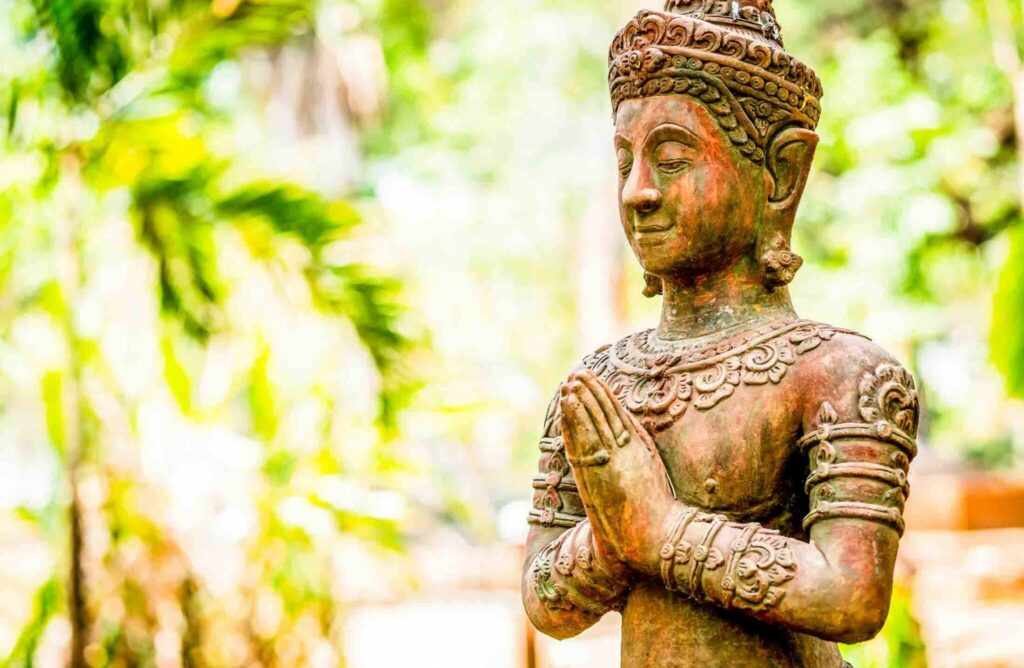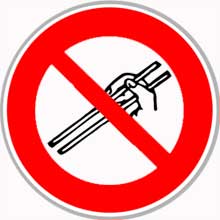What I wish someone had told me on day one
Moving to Thailand is exciting — the food, the beach life, the warm weather. But once you’re here, small cultural moments can catch you off guard. A smile instead of a loud complaint. A polite bow instead of a handshake.
I learned a few of these the hard way. So here’s your friendly shortcut — the basic do’s and don’ts that’ll help you settle in like a respectful local (not a clueless tourist).
🙏 The Wai — More Than a Greeting
The wai (hands together, slight bow) is a traditional Thai gesture used to say hello, thank you, or show respect. You’ll see it everywhere — and it matters.
🟡 Do: Return the wai when someone gives it to you, especially if they’re older or in a formal setting.
🔴 Don’t: Wai casually to children or service workers — it’s not expected and can feel awkward.
Tip: A polite nod and smile often works just as well if you’re unsure when to wai.

🛕 Visiting Temples? Dress & Act Respectfully
Temples (wats) are sacred spaces, not photo ops.
👕 Dress: Cover shoulders, chest, and knees. Loose pants or a long skirt + a light scarf work great.
🥿 Shoes: Take them off before entering any temple building.
🤫 Behavior: Stay quiet, don’t point your feet at Buddha images, and avoid public displays of affection.
Did you know? Climbing on Buddha statues for photos is a serious offense. Even small tattoos of the Buddha can be considered disrespectful.

👣 Feet = Low, Head = High
In Thai culture, the head is the most sacred part of the body. The feet? The lowest.
❌ Don’t point your feet at people, step over someone, or touch anyone on the head — even kids.
✅ Do sit cross-legged or with your feet behind you in more formal settings (like temples or ceremonies).
It might feel unnatural at first, but it quickly becomes second nature.

😁 Keep Calm & Smile
You’ll notice something strange at first — people smile even when something goes wrong. It’s part of the Thai approach to life, called “jai yen” — cool heart.
😠 Getting angry in public? Big no.
😌 Staying calm and polite? Always appreciated.
The smile isn’t fake — it’s a tool to keep peace and harmony in everyday situations.

🤳 Phone Etiquette & Photos
Taking selfies at a temple or market? No problem. But always be mindful of people and the space.
📸 Ask before taking someone’s photo, especially monks or street vendors.
📵 During national anthems (played daily at 8am and 6pm in public places), stop what you’re doing and stand still — it’s a sign of respect.

🧍♀️ Standing for the King
Thais deeply respect their monarchy. Making jokes or disrespectful comments about the King — even online — can lead to serious legal trouble.
🛑 Don’t: Step on Thai currency (it has the King’s face).
🛑 Don’t: Criticize the monarchy, even in casual conversation.
✅ Do: Stand during the national anthem in cinemas and train stations.

🍽️ Eating with Grace
Taking selfies at a temple or market? No problem. But always be mindful of people and the space.
📸 Ask before taking someone’s photo, especially monks or street vendors.
📵 During national anthems (played daily at 8am and 6pm in public places), stop what you’re doing and stand still — it’s a sign of respect.

Sharing is caring: Thai meals are meant to be shared. Order a few dishes and enjoy everything together — it’s part of the experience.
🌟 Final Thought: Respect Over Rules
You don’t have to be perfect. Locals understand you’re a newcomer. But showing even small signs of respect — a wai, modest clothing, a calm smile — makes a big difference.
You’ll be surprised how warm and welcoming people are when they see you’re trying.
So breathe in the culture, stay curious, and enjoy the journey.
Your new home isn’t just a beach destination — it’s a beautiful, complex, respectful place to grow.
